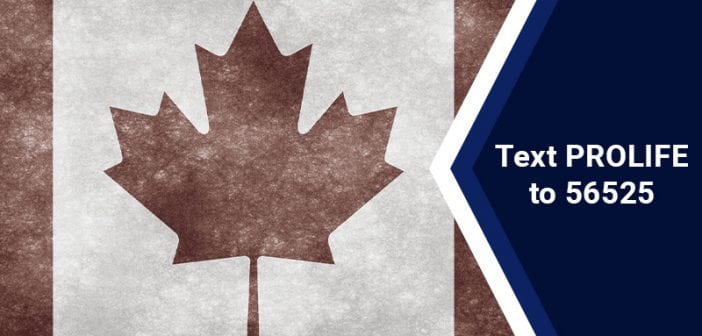A recent investigation conducted by the B.C. Catholic found that Canadian patients are being encouraged and even pressured to choose to die by assisted suicide instead of continuing care. The investigation was prompted by a Coquitlam-area woman’s story of being pressured to opt for assisted suicide while hospitalized with a serious illness. According the B.C. Catholic, the woman, whose identity was concealed, “felt pestered, pressured, and discouraged at a time when she needed all her strength to recover.”
Further investigation into the Fraser Health Authority, which oversees the hospital system in British Columbia, discovered that patients “have been offered death by euthanasia without requesting it, contrary to the health authority’s safeguard policy of requiring patients to raise the issue of assisted suicide.” Documents from the Fraser Health Authority describe assisted suicide as “entirely patient-driven,” but patients and medical experts dispute that this standard is being met.
The B.C. Catholic interviewed Dr. Willard Johnston of Vancouver, a medical doctor and head of the B.C. Branch of the Euthanasia Prevention Coalition. He said the Fraser Health Authority “quite aggressively started pushing euthanasia in every corner” of the medical complex that serves more than 1.8 million people when assisted suicide became legal in 2016. Johnson argued, “It’s not rational provision of medical services. It’s not provision of services that is being geared to the population. It’s being geared to the ideology of radical autonomy.”
Dr. Ramona Coelho, who is opposed to assisted suicide, argued, “It is extremely important that doctors never say to the patient that they could be better off dead.” Offering assisted suicide introduces hopelessness. When doctors offer induced death without discussing continued care, there can be significant pressure for the patient to opt for assisted suicide. This dangerous situation can be exploited by family members or hospitals that want to save money.
Where assisted suicide is legal, people might assume that there are more robust safeguards to ensure personal choice in medical care and protect the patients. Quite the opposite is occurring, as Pro-Lifers have warned for years.
The claims of a lack of safeguards in Canadian hospitals are backed by stories like that of Roger Foley, who alleges that because he suffers from a neurological condition, he was offered assisted suicide. In 2018, Foley shared “audio recordings that he said proves hospital staff promoted medically assisted death even while they would not provide him with assisted home-care.”
Likewise, Sharon Elson has publicly shared her story of being offered assisted suicide for her daughter, Candice, who has spina bifida and cerebral palsy. Without expressing any interest in ending her daughter’s life through assisted suicide, Elson was informed that she could. She said in an interview that she told the doctor, “I was shocked and said, ‘well, I’m not really interested,’ and he told me I was being selfish.”
Nurses told the B.C. Catholic that doctors regularly introduce the topic of assisted suicide unprompted, and that nurses are discouraged or prevented from discussing palliative care with patients. One nurse said that when nurses discussed certain palliative care with patients “doctors get upset.” She added, “Previously, we were able to do it. Now they cut us out. It is so very upsetting. Patients need to be educated.”
Alex Schadenberg, executive director of the Canadian Pro-Life group the Euthanasia Prevention Coalition, said, “I am hearing stories like this from all across Canada.”
Disturbingly, amid all of the abuses and faulty safeguards of the current law, legislators in Canada are considering Bill C-7, which would expand assisted suicide even more, allowing people who are not considered terminally ill to end their lives in assisted suicide. The threats to vulnerable hospital patients and people with chronic conditions will increase if the bill becomes law, putting even more pressure on people to choose death instead of treatment.
In Texas, there is no legal assisted suicide, but Texas patients still face deadly pressure. That is why Texas Right to Life has made repealing the deadly 10-Day Rule a priority.


